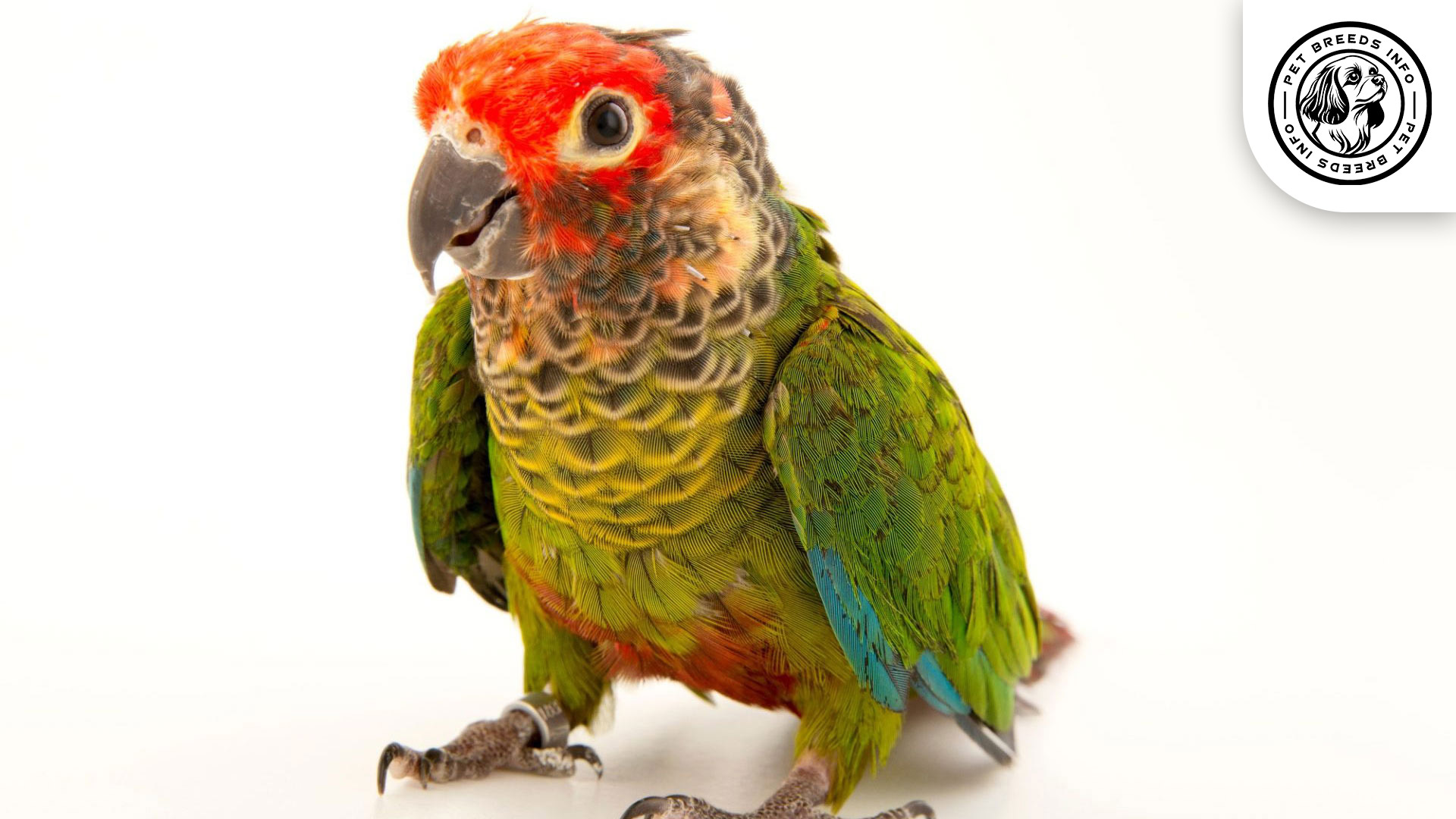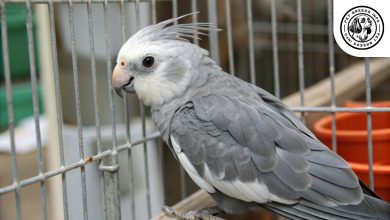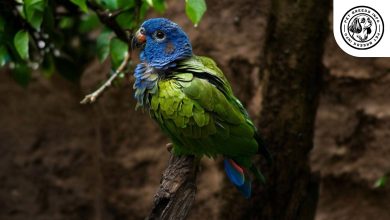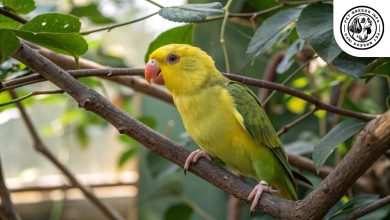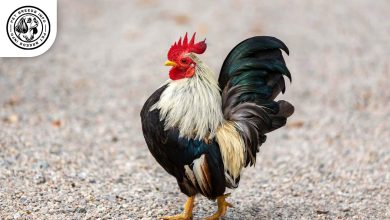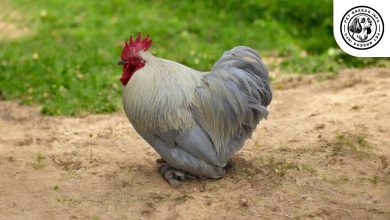Rose-fronted Conure Bird: Personality, Lifespan, Food & Care
General Introduction of the Breed
The Rose-fronted Conure (Pyrrhura roseifrons) is a small, playful member of the parrot family. It is also known as the Rose-fronted Parakeet. This species is native to the Amazon rainforest of South America, particularly in countries like Peru, Ecuador, and Brazil.
The Rose-fronted Conure has been admired for its vibrant colors and friendly nature. While it is not as widely recognized as other conure species, bird enthusiasts praise it for its intelligence and affectionate personality.
Table of Contents
| Common Name | Rose-fronted Conure, Rose-fronted Parakeet |
| Scientific Name | Pyrrhura roseifrons |
| Origin | Amazon rainforest of South America (Peru, Ecuador, Brazil) |
| Size | 22 to 25 cm (8.6 to 9.8 inches), 60 to 90 grams (2.1 to 3.2 ounces) |
| Lifespan | 15 to 25 years |
| Talking Ability | Can mimic some sounds or words |
| Colors | Primarily green with a rose-red forehead, scalloped green and yellow chest, blue and green wings, green and maroon tail |
| Noise Level | Moderate (soft chirps, whistles, and squawks) |
| Social Behavior | Playful, curious, affectionate, forms strong bonds, generally good with families |
Physical Characteristics
This conure is a small to medium-sized parrot, typically growing between 22 to 25 cm (8.6 to 9.8 inches) in length and weighing around 60 to 90 grams (2.1 to 3.2 ounces).
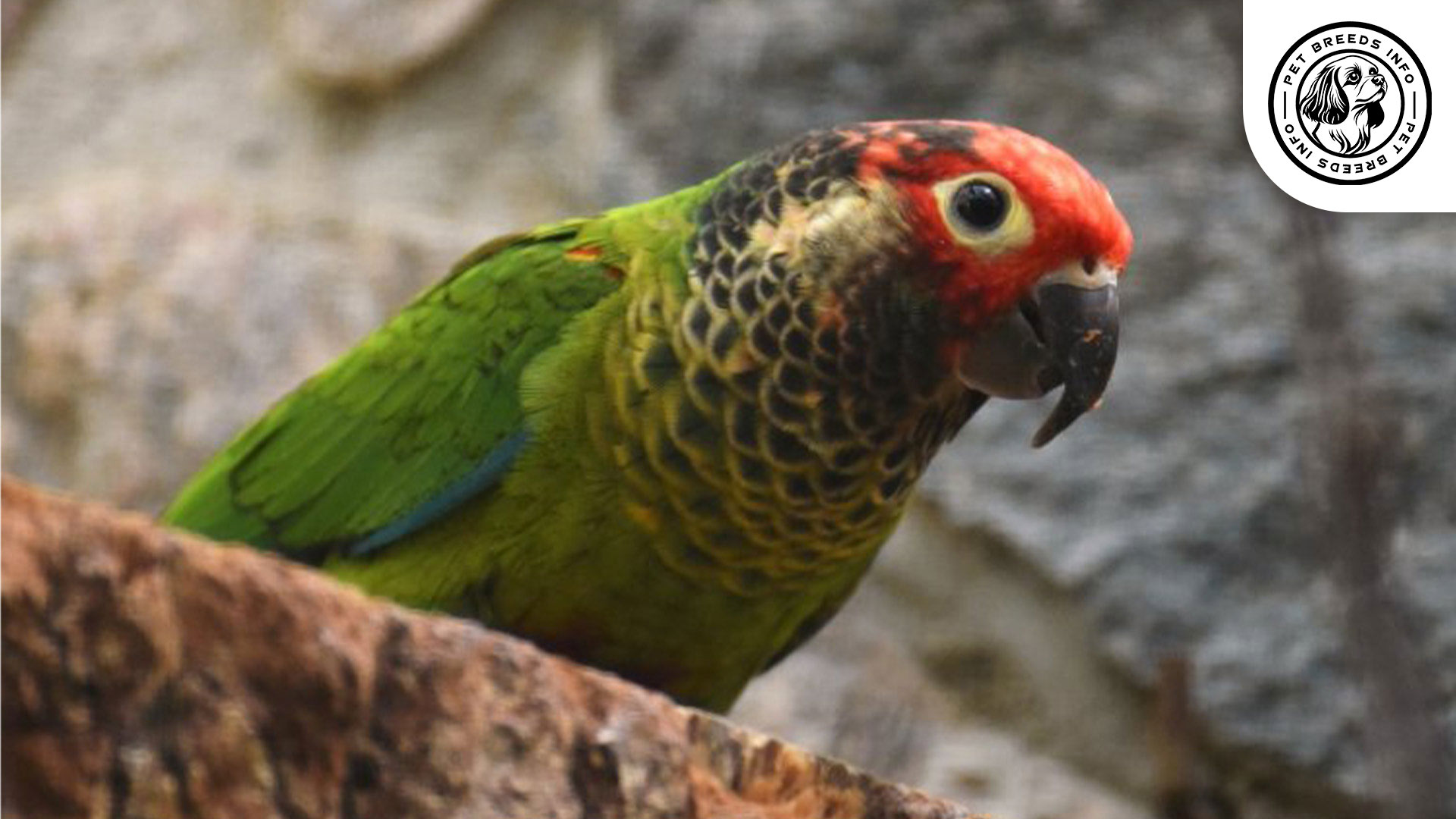
Its plumage is primarily green with a distinctive rose-red forehead, which gives the bird its name. The chest is scalloped with green and yellow tones, while the wings display shades of blue and green.
The bird has dark eyes encircled by white featherless skin patches, giving it an expressive look. Its tail is long and tapered, composed of green and maroon shades.
This species has a strong, curved beak that is primarily black or dark grey, perfect for cracking seeds and nuts.
Read More: Finsch’s Conure
Personality and Temperament
Rose-fronted Conures are highly intelligent birds that thrive on social interaction and mental stimulation. They are playful, curious, and enjoy learning new tricks.
These birds have moderate to high energy levels and require regular playtime to stay entertained. They form strong bonds with their owners and can become quite affectionate, often seeking social interaction and attention.
They generally get along well with families and can be good companions for responsible children. However, they may be shy or cautious around strangers. Their playful nature often includes exploring their environment, chewing on objects, and engaging in interactive games.
Unlike some larger parrots, the Rose-fronted Conure is not overly loud, but it will still vocalize throughout the day with soft chirps, whistles, and squawks.
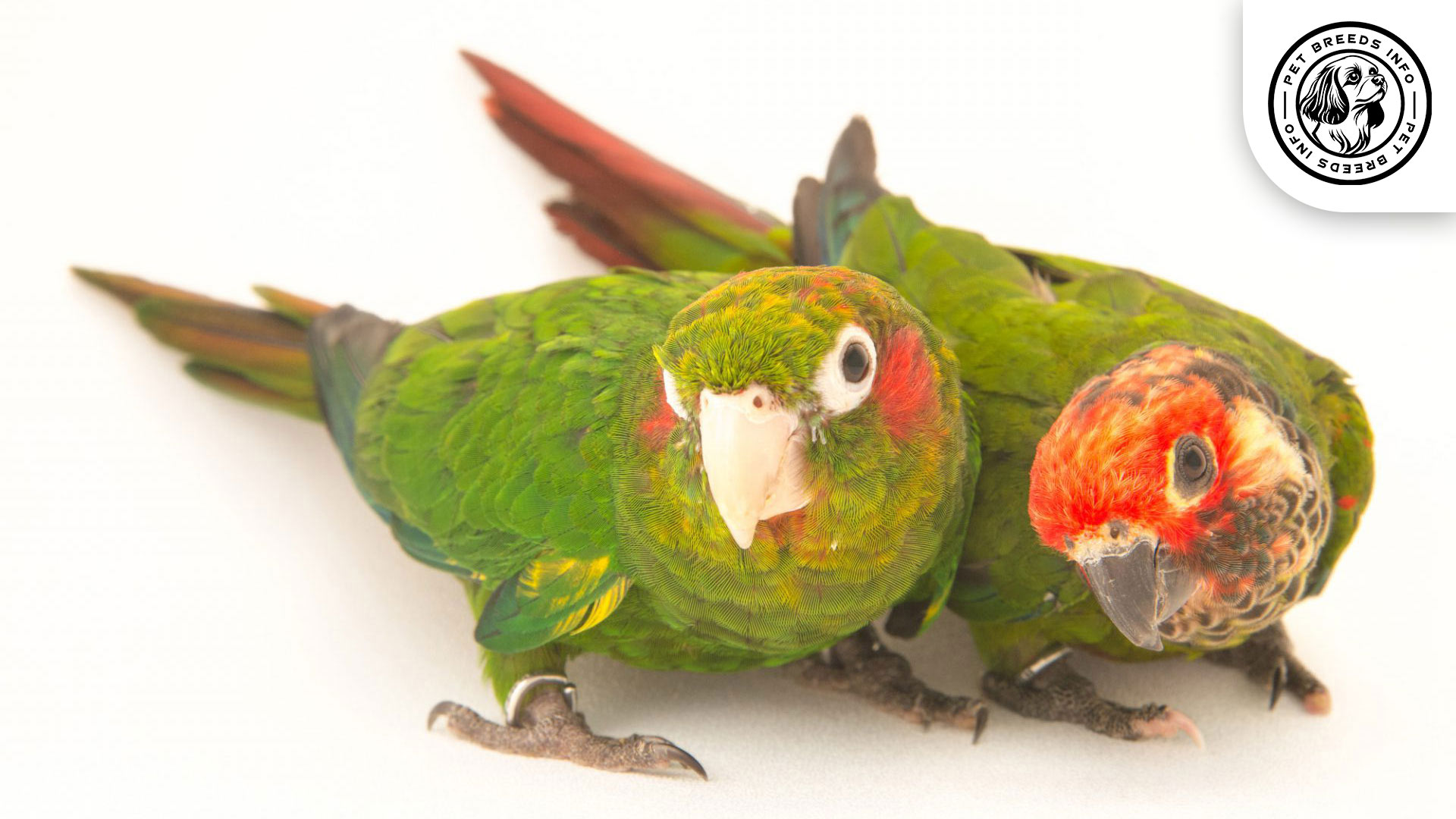
Care and Maintenance Requirements
Being an active bird, the Rose-fronted Conure requires daily exercise outside its cage to stretch its wings, explore, and interact with its owners. Providing a spacious cage with multiple perches and plenty of toys is essential to prevent boredom.
This conure is adaptable and can live comfortably in an apartment as long as it gets regular interaction and playtime.
Grooming is minimal, requiring occasional nail trimming and beak maintenance. Bathing can be done by misting the bird with water or providing a shallow bowl for it to bathe in.
These birds are sensitive to extreme temperatures, particularly cold drafts, so it’s important to keep their environment at a comfortable temperature.
Diet and Nutrition
A well-balanced diet for a Rose-fronted Conure consists of high-quality pellets, fresh fruits, vegetables, and occasional seeds or nuts. A variety of foods will help meet dietary needs and keep the bird engaged during meals.
Foods to avoid include avocado, chocolate, caffeine, alcohol, onions, and salty or sugary foods, as these can be toxic to birds.
Portion sizes should be adjusted based on the bird’s activity level, typically with two meals per day, offering fresh produce alongside staple pellet diets.
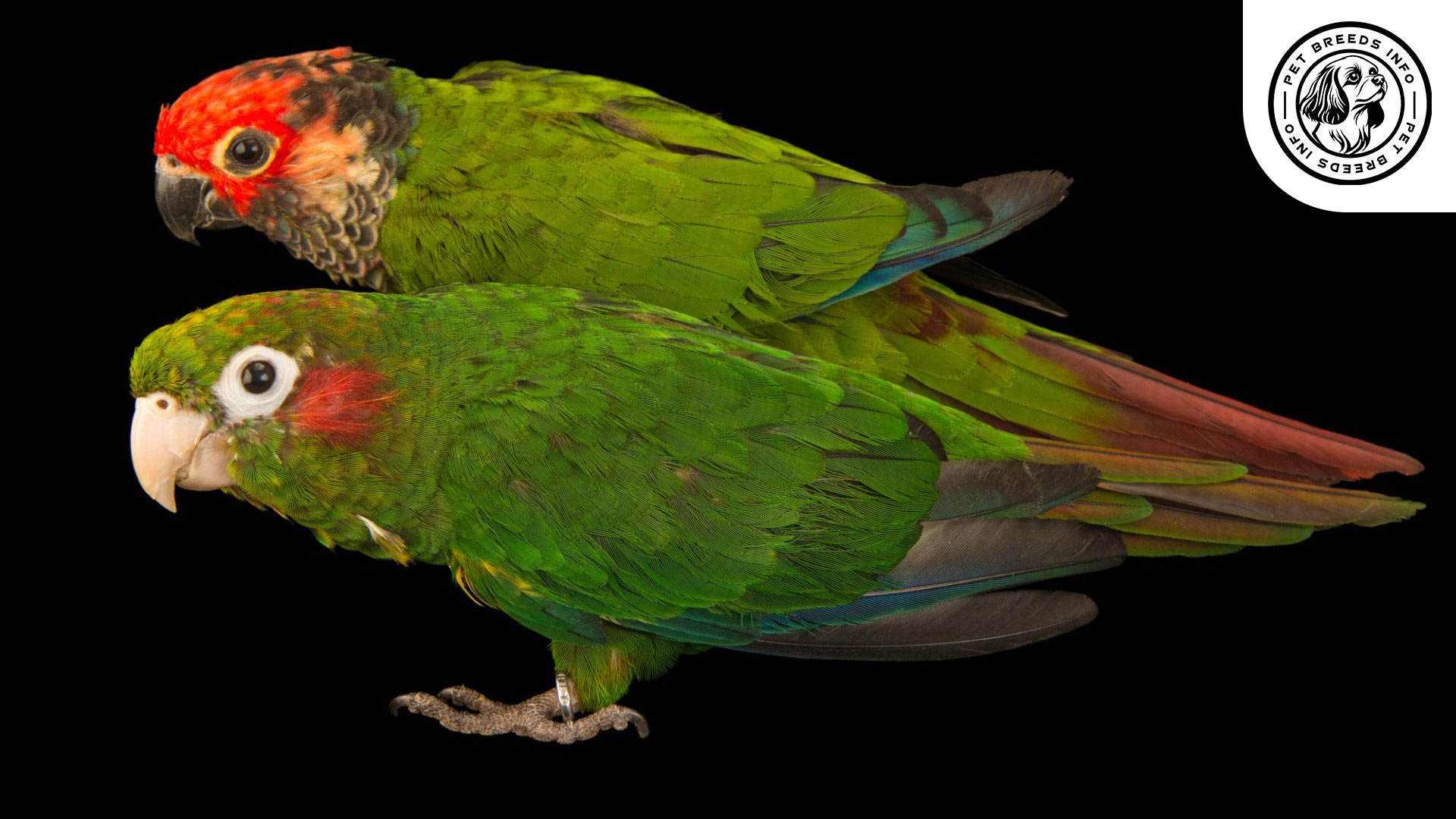
Health and Common Medical Issues
Rose-fronted Conures are generally healthy birds when given proper care, but they are prone to common parrot health concerns such as feather plucking (due to stress or boredom), respiratory infections, and beak abnormalities.
Regular veterinary check-ups and a clean environment can help prevent illnesses. A lifespan of 15 to 25 years is typical with good care.
Vaccinations are not commonly required for pet conures, but an avian vet should be consulted for routine health monitoring.
Read More: Pin-tailed Whydah Bird
Training and Behavior Management
Training these birds can be relatively easy due to their intelligence and eagerness to bond with humans. They respond well to positive reinforcement techniques such as offering treats and praise when they perform desired behaviors.
Early socialization and consistent interaction help them become well-adjusted pets. They can be taught simple tricks like stepping up onto a finger, waving, and even mimicking some sounds or words.
Interaction with Other Animals and Humans
Rose-fronted Conures are affectionate birds that enjoy socializing with their human family members. They can be good companions for children but should always be supervised during interactions.
They tend to get along well with other birds of similar size, but proper introductions and gradual socialization are necessary.
While they enjoy spending time with their owners, they do require attention and mental stimulation. If left alone for long periods, they may become bored or develop behavioral issues.
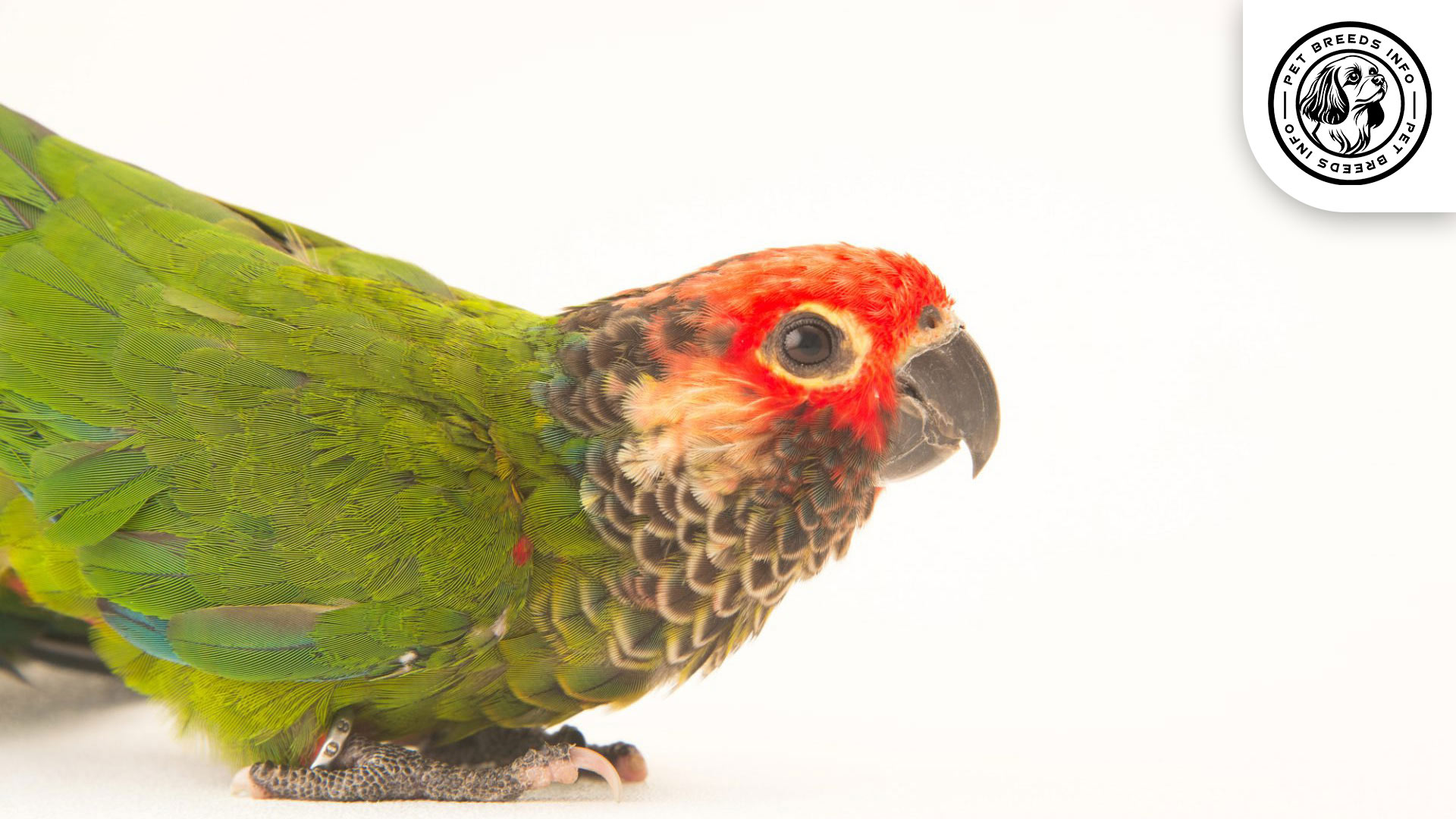
Price and Availability
The cost of a Rose-fronted Conure varies depending on factors such as age, breeder reputation, and location. Typically, they can be priced between $300 to $600.
It is important to purchase from reputable breeders or adopt from bird rescue organizations to ensure the bird is healthy and well-socialized.
Potential owners should ensure they have the time, resources, and commitment necessary to provide a long and happy life for the bird before making a purchase.
Conclusion and Final Thoughts
The Rose-fronted Conure is an excellent pet for bird lovers who are looking for a playful, intelligent, and affectionate companion. With proper care, social interaction, and a balanced diet, these birds can bring joy to their owners for many years.
They are well-suited to individuals or families who can dedicate time to training and interaction. Those who prefer a quieter pet may want to consider the noise level associated with conures.
Ultimately, owning a Rose-fronted Conure is a long-term commitment and requires responsible care, but the rewards of companionship and affection make it a wonderful bird for the right owner.
Read More: Cut-throat Finch
FAQ
What is a Rose-fronted Conure known for?
They are known for their vibrant colors, playful nature, and affectionate personality.
How big do Rose-fronted Conures get?
They typically grow to be between 22 to 25 cm (8.6 to 9.8 inches) long.
Are Rose-fronted Conures loud birds?
They have a moderate noise level with soft chirps, whistles, and squawks.
What do Rose-fronted Conures eat?
Their diet should include high-quality pellets, fresh fruits, vegetables, and occasional seeds or nuts.
How long do Rose-fronted Conures live?
With good care, they typically live for 15 to 25 years.
